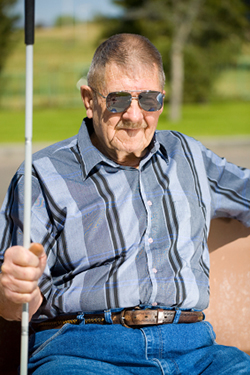
Take control of your memories, thoughts or pain… It’s really possible!
This is an updated post from our archives. Spokz People, a non-profit organization, offers specialized support to adults with physical disabilities and their families, focusing on areas such as relationships, pain management, and mental health. One of their therapies, EMDR (Eye Movement Desensitization and Reprocessing), is particularly effective for addressing trauma related to medical experiences.
 “Our service is quite unique in that all of us have a personal connection with disability as well as having qualifications. In my case, my partner has a physical disability. Most people we work with say that our disability experience makes us more effective than generic services. We also work in a very flexible way which suits many disabled people. We’re a friendly bunch and passionate about helping people get the most out of their lives.
“Our service is quite unique in that all of us have a personal connection with disability as well as having qualifications. In my case, my partner has a physical disability. Most people we work with say that our disability experience makes us more effective than generic services. We also work in a very flexible way which suits many disabled people. We’re a friendly bunch and passionate about helping people get the most out of their lives.
One of the therapies we offer is EMDR for trauma. A trauma can happen when you have had an accident, surgery, repeated hospitalisation or your diagnosis was difficult. Being isolated from your family at such a difficult time can also contribute to trauma.
EMDR is great for people who don’t like talking about feelings. You just let your brain do most of the work! EMDR is also useful if you have speech difficulties or have a pain condition.”
What is EMDR?
EMDR is an acronym for ‘Eye Movement Desensitisation and Reprocessing’ (yes it’s long-winded, but we didn’t make it up!).
EMDR started off as a treatment for war veterans with post-traumatic stress disorder. They soon discovered it was helpful with many different traumas.
It is recommended by the NHS, but availability is patchy and there is usually a wait.
Phil (alias) has been hospitalised more than ten times in the past ten years, often emergencies due to breathing difficulties. The suffocating feeling he experienced made his body disassociate from his mind: a way of protecting ourselves in this type of emergency situations.
On top of this there were several occurrences of misdiagnosis as well as a lack of bedside manner from healthcare professionals.
Now, any situation where he has little control brings back the same thoughts and feelings resulting in panic attacks and anxiety.
EMDR can stop daily situations triggering these memories, as well as helping make these memories less upsetting.
How does EMDR work?
Normal memories are stored in a processed form in our brains. In situations of fear or trauma however, our brain can become overwhelmed and processing is missed out. These memories are stored unprocessed, away from other memories.
When you recall the memory, it is like playing the same video again and again. You re-experience what you saw, heard, smelt, tasted or felt. This can be quite intense. You can have similar symptoms as a war veteran like flashbacks and nightmares.
During EMDR the therapist asks you to follow their fingers left and right. This left-right movement stimulates the brain, causing the memory to be less upsetting and more like ‘ordinary’ memories. The theory is that EMDR is similar to what happens naturally when we sleep and our eyes move rapidly from side to side.
Locations & Fees
EMDR has to be done face to face and is therefore only available in Lichfield, Staffordshire at the moment. However, there are many ways we can support you. If you live in Birmingham we have a grant which means you can access our services at low cost. We consider reduced fees in other areas on a case by case basis. We work nationwide via email, Skype and telephone.
Find out more about EMDR or our other services?
01543899317 or 07733681883
info@spokzpeople.org.uk
By Mèl Halacre
Self-Help Strategies for Managing Trauma
Managing trauma can be challenging, but incorporating self-help strategies into your routine can make a significant difference. Here are some practical tips to help you on your journey:
- Practice Mindfulness: Engage in daily mindfulness exercises, such as deep breathing or meditation. Apps like Headspace can guide you through simple techniques to stay grounded in the present moment.
- Incorporate Gentle Physical Activity: Movement can have a positive impact on your mental health. Activities such as yoga, stretching, or short walks can help reduce anxiety and improve overall well-being. Always consult your healthcare provider before starting a new exercise routine.
- Connect with Support Networks: Reach out to support groups or online communities where you can share experiences and learn coping strategies. Organizations like Spokz People offer spaces for connection and support.
- Keep a Journal: Writing about your thoughts and feelings can help process emotions and identify triggers. A simple notebook or a journaling app can help you get started.
- Seek Professional Help: While self-help is valuable, therapy options like EMDR or talking therapies can provide structured support. Consider reaching out to a professional to guide you through the healing process.
Remember, healing takes time, and it’s okay to seek help when needed. You’re not alone on this journey.
Originally posted on 22/06/2015 @ 12:25 am


